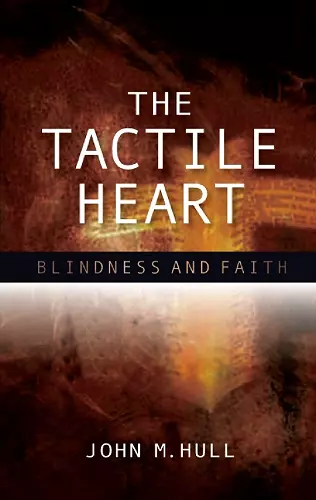The Tactile Heart
Blindness and Faith
Format:Paperback
Publisher:SCM Press
Published:30th Aug '13
Currently unavailable, and unfortunately no date known when it will be back

The Tactile Heart is a collection of theological essays on relating blindness and faith and developing a theology of blindness that makes a constructive contribution to the wider field of disability theology. John Hull looks at key texts in the Christian tradition, such as the Bible, written as a text for sighted people, and at hymns, which often use blindness as a metaphor for ignorance and explores how these can be read by blind people.
In this wonderful compilation of John Hull’s work he offers us wisdom and challenge as he draws to our attention the beauty and the breadth of possibilities for being human and living humanly in the midst of difference. If you are genuinely interested in understanding humanness, this book will certainly aid you on your journey. -- John Swinton
Hull urges that a theology of disability must start from the premise that to be imperfect is part of the condition of divinely created human plurality. In a remarkable letter to Jesus he says: "Blind people had to become sighted before they could follow you. ... Well, Lord, I forgive you". But his sharpest observation is that: "The broken body on earth corresponds to the broken body in heaven." It is highly unusual in this Laodicean postmodern age to encounter a missile of blazing passion guided by cold, forensic calculation. -- Kevin Carey
This book is a rare and compelling exploration of how blind and sighted persons imagine the invisible. The author probes what it means for anyone to lose one’s world, and argues for why our notion of disability demands a widening of the human. In so doing, the book is both a window and a mirror. As a window, it reveals the author’s desire for inner healing “that comes from acceptance, from inclusion, from the breaking down of barriers through mutual understanding, for acceptance of different worlds, of different kinds of human life.” As a mirror, it shows how and why we readers come to regard blindness “in the light of our unconscious cultural constructs.” Thus, it challenges our concepts of what is normal and fully human, and what it means to be impaired. In many ways this is not an easy read because it pricks our pretenses. Yet, it is above all a work of hope because, true to his own calling as a teacher, John Hull concludes his work with a firm conviction that teachers, by their “experience, familiarity and imagination” can cross over into the lives of another human being and “enter into several worlds.” Such teaching, he argues, contributes to building a better world in which it will be easier to accept varieties of normality. For sighted and blind persons this book is a rare gift and an elegantly argued challenge. I recommend it for students and teachers alike for their mutual pondering. -- Gloria Durka
ISBN: 9780334049333
Dimensions: unknown
Weight: unknown
192 pages